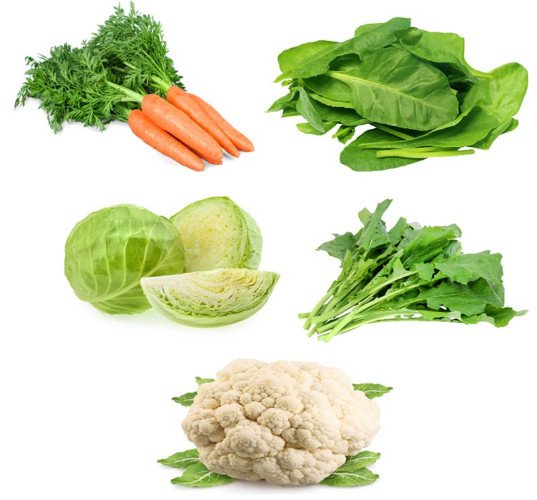
In the winter, our bodies seek rich foods that provide both warmth and nourishment. This need necessitates the consumption of warming foods. Any vegetable that takes a long time to mature and has an edible section that grows beneath the ground’s surface is usually warming and a wonderful winter vegetable to eat. When it comes to eating holistically for our health, seasonal foods provide a natural diversity that we should take advantage of.
Carrots
The carrot is a root vegetable that is crunchy, delicious, and packed with nutrients. Beta carotene, fiber, vitamin K1, potassium, and antioxidants are the nutrients that are found in carrots. They are a healthy weight-loss snack that has been linked to decreasing cholesterol and bettering eye health. Their antioxidant carotene has also been associated with a lower incidence of cancer. Carrots might trigger allergy reactions in persons who are allergic to pollen. Carrots cultivated in contaminated soils may also have greater levels of heavy metals, compromising their safety and quality. To reap the benefits of numerous fruits and vegetables, including carrots, it must be consumed in moderation to avoid any negative consequences. Bangladeshis typically enjoy carrots raw, as sautéed or as the popular dessert known as gajor er halwa.
Cabbage
To enhance the diet, start with cruciferous vegetables like cabbage. These are rich in vitamins, fibers and antioxidants. Consumption of cabbage may reduce the risk of certain diseases like heart diseases, high blood pressure, and high cholesterol level, improve digestion and reduce inflammation.
Some people have difficulty digesting cruciferous vegetables and may get stomach issues as a result. Consuming tiny amounts of cabbage and thoroughly boiling it may be beneficial. Try to eat 12 to 34 cup cooked or 12 cup raw cabbage at least 5 days a week to obtain the greatest benefit. Bangladeshis are known for their love of Bengali cabbage curry or cabbage and potato curry.
Cauliflower
Cauliflower is a cruciferous vegetable strong in fiber and B vitamins by nature. Cauliflower is a good source of vitamins and minerals, as it contains a small amount of practically every vitamin and mineral your body requires. Cauliflower is high in antioxidants, which may help to reduce inflammation and protect against diseases including cancer and heart disease. Increased bloating and gas may be caused by high-fiber foods.
Vitamin K helps the blood clot, thus high levels of it can cause issues for people who use blood thinners. Adults are recommended to eat 1.5 to 2.5 cups of dark green vegetables per week. Most Bangladeshis like to eat cauliflower cooked with potatoes and sometimes even roasted cauliflower.
Spinach
Spinach is a leafy green vegetable related to beets and quinoa that belongs to the amaranth family. Although it has low calories, it is filled with nutrients. Spinach and other dark, leafy greens are good for the skin, hair, and bones as well as helping in diabetes management, cancer prevention and heart diseases prevention.
For those whose kidneys are not properly working, consuming too much of this potassium can be dangerous. An excessive accumulation of gas can be caused by eating too much spinach as well. Therefore, the recommended amount is two cups per day. Stir fried spinach is very popular in Bangladesh.
Mustard leaves
Mustard greens have a spicy flavor and come from the mustard plant. Vitamin K, vitamin C, and plant chemicals with antioxidant and anticancer properties are particularly abundant. Incorporating mustard greens into the diet may also help the heart, eyes, and immune system.
Mustard greens contain oxalates, which, if ingested in high amounts, can raise the risk of kidney stones in some people. If someone is prone to oxalate-type kidney stones, they should limit the intake of mustard greens. Fried mustard leaves are a palatable dish in this country.
 Weekly Bangla Mirror | Bangla Mirror, Bangladeshi news in UK, bangla mirror news
Weekly Bangla Mirror | Bangla Mirror, Bangladeshi news in UK, bangla mirror news







